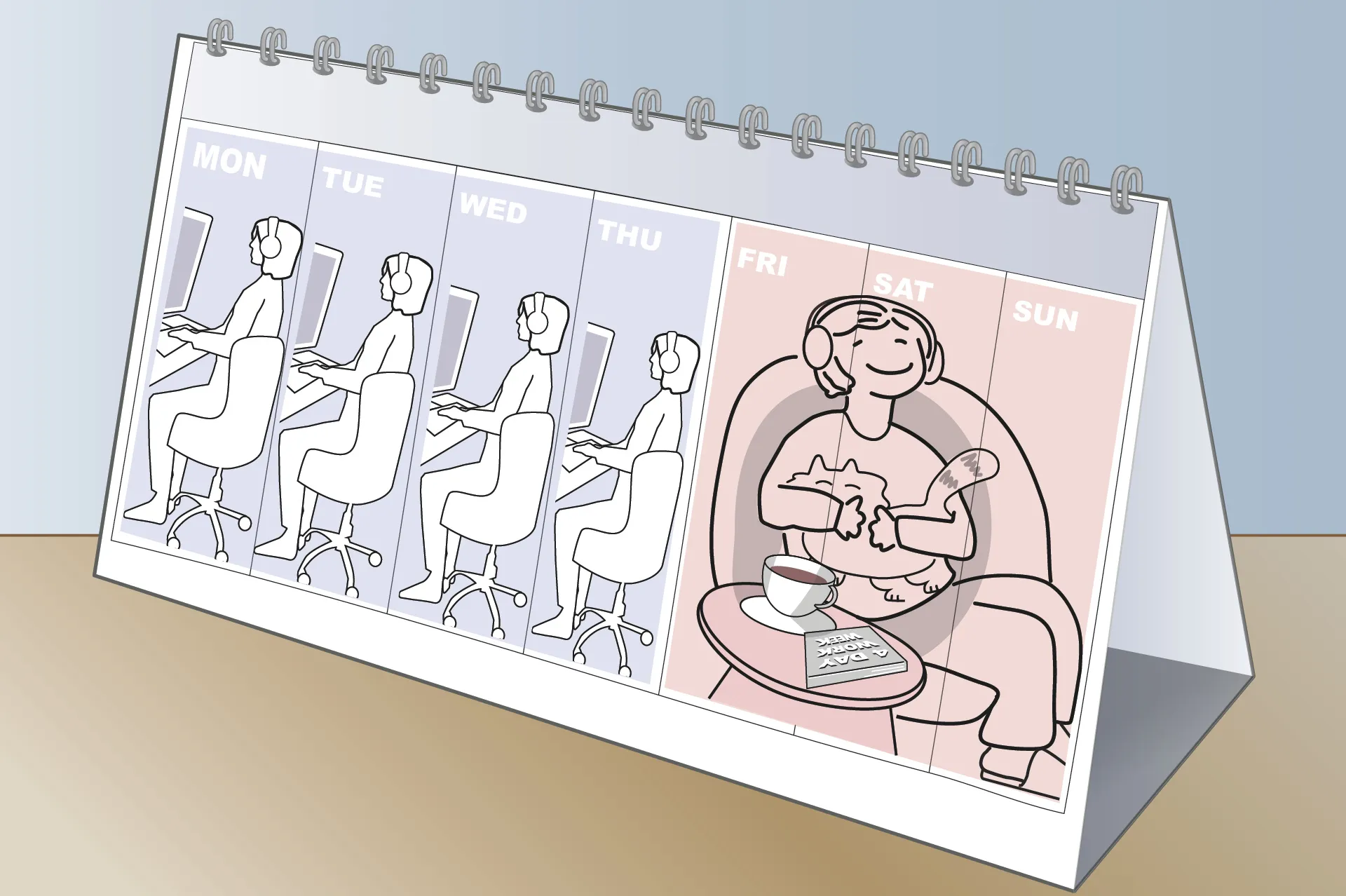Exploring the Benefits of a Four-Day Workweek

The Rise of the Four-Day Workweek
Companies exploring the option of letting employees work four days a week hope to reduce job burnout and retain talent seeking a better work-life balance, according to the chief executive of an organization that promotes the idea. The trend is gaining traction in Australia and Europe, says Dale Whelehan, CEO of 4 Day Week Global, which coaches companies through the months-long process of shortening their employees' work hours. Japan launched a campaign in August encouraging employers to trim work schedules to four days. American companies haven't adopted four-day weeks as broadly, but that could change.
Addressing Workplace Challenges
Eight percent of full-time employees polled by Gallup in 2022 said they work four days a week, up from 5% in 2020. Whelehan outlines the compelling reasons for considering this change:
- Social Issues: Burnout and recruitment crises are prevalent.
- Health Implications: Stress is linked to various serious health conditions.
- Environmental Concerns: Long commutes contribute to a climate crisis.
Moreover, Whelehan believes that the current work structure must evolve to meet the needs of a highly cognitive workforce, suggesting that the four-day workweek might be a solution.
Productivity Gains Through Change
Whelehan introduces the 100-80-100 principle: 100% pay for 80% time for 100% output. This approach focuses on what outcomes drive businesses, urging companies to rethink productivity measures.
Equity and Responsibility in the Workplace
Disproportionate effects on women, often in part-time roles, arise from traditional work structures. Implementing a four-day workweek encourages men to share household responsibilities more equitably.
The Meeting Dilemma
Whelehan points out that our addiction to meetings is counterproductive, especially in a four-day workweek setting. Optimizing work processes can enhance overall efficiency.
This article was prepared using information from open sources in accordance with the principles of Ethical Policy. The editorial team is not responsible for absolute accuracy, as it relies on data from the sources referenced.